Sealife guideThe common stonefishSynanceia verrucosa
Last updated on 02/15/2024 at 11:45 PM
Taxonomy
- Common name: Common stonefish, reef stonefish
- French name: Poisson pierre commun, synancée verruqueuse
- Spanish name: Pez piedra común
- Scientific name: Synanceia verrucosa (Bloch & Schneider, 1801)
- Family name: Synanceiidae
- Order name: Perciformes
- Class name: Actinopterygii
Description
The common stonefish is an expert of camouflage with its brown or grey coloration potentially dotted with numerous irregular yellowish, orange or red spots. A panoply of colors that gives it the appearance of a stone, even a crusted rock or a block of coral !
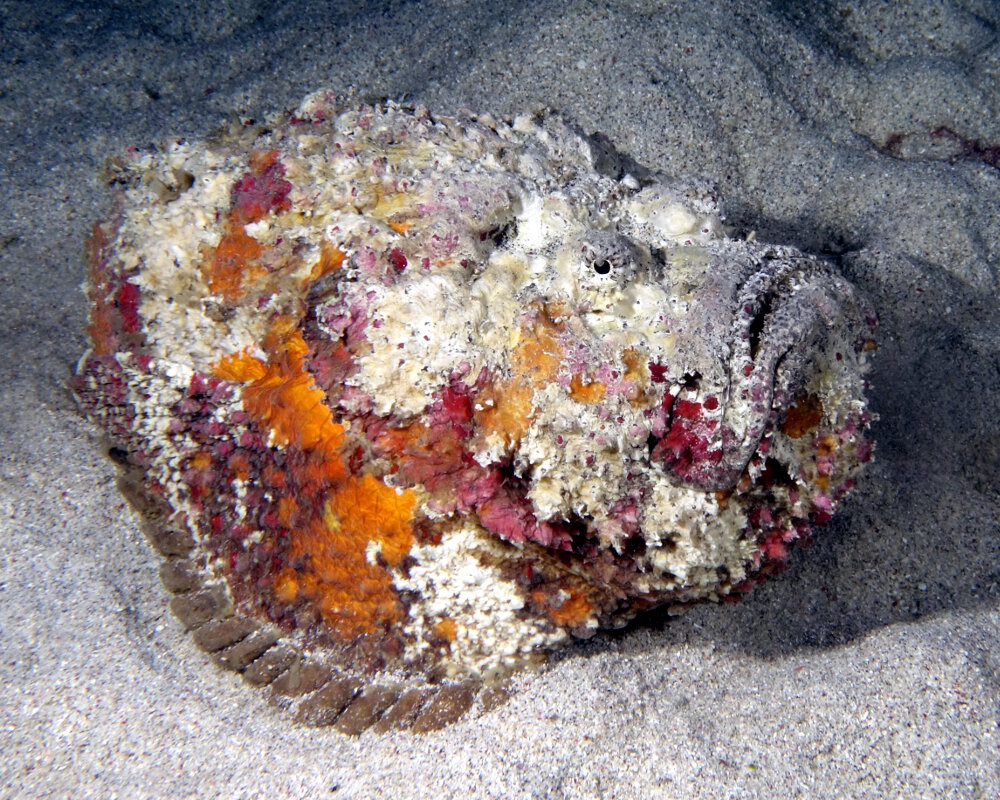
The common stonefish (Synanceia verrucosa) © David Sanford | Dreamstime.com
The common stonefish has an ovoid body with a total length of around thirty centimeters long. Its mouth is oriented upwards and its dorsal fin is equipped with 13 very strong defensive spines capable of injecting a very powerful poison.
Geographic range
The common stonefish is widely distributed in the warm tropical waters of the Indo-Pacific Ocean and the Red Sea.
It is found in Australia around the Great Barrier Reef and along the eastern coasts of Queensland to the far north of New South Wales.
Habitat
The common stonefish generally frequents rocky or coral bottoms where it lives hidden in crevices or under rocky ledges but it can also be found on sandy bottoms where it buries itself using its large pectoral fins.
Diet
The common stonefish feeds mainly on fish and crustaceans, which it hunts by camouflaging itself in its environment.
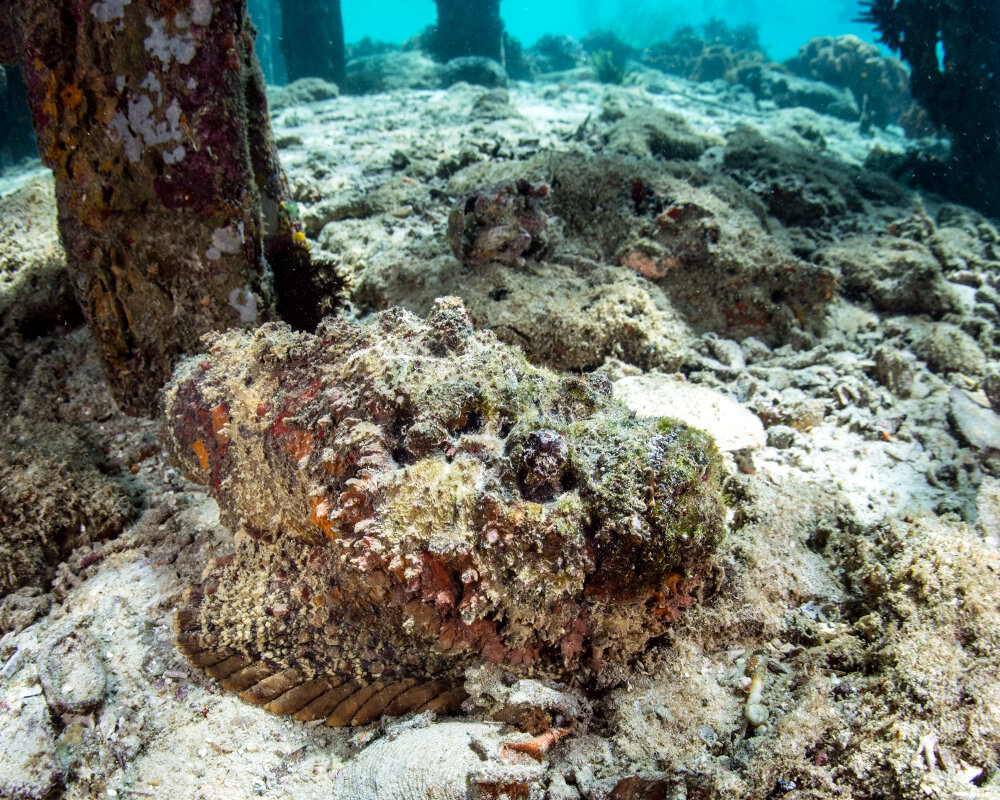
A stonefish camouflaged at the foot of a pier hunts on the lookout © Ethan Daniels | Dreamstime.com
The main predators of the common stonefish are sharks and rays.
Did you know ?
The common stonefish has dorsal spines capable of injecting an extremely toxic venom.
The speed with which common stonefish capture prey passing close by is impressive !
The common stonefish is listed as many other marine species within The IUCN Red List of threatened species. The common stonefish appears in the IUCN Red List since 2018 within the category Least Concern !
Tips for observing
The common stonefish is particularly hard to spot in its environment, so keep an eye out !
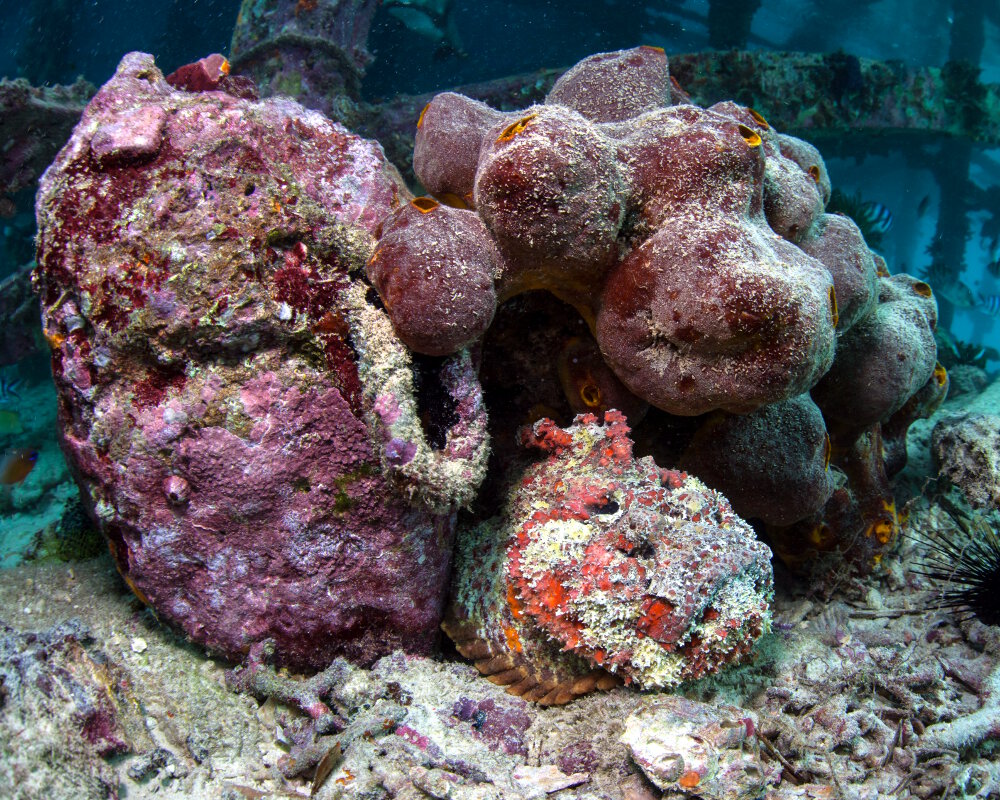
The stonefish's art of camouflage ! © Ethan Daniels | Dreamstime.com
Discover also
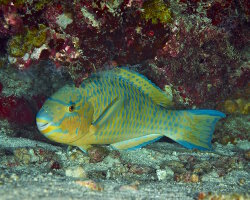
Blue-barred parrotfish
(Scarus ghobban)
(Scarus ghobban)
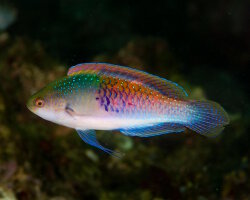
Bluescaled wrasse
(Cirrhilabrus cyanopleura)
(Cirrhilabrus cyanopleura)

Painted frogfish
(Antennarius pictus)
(Antennarius pictus)
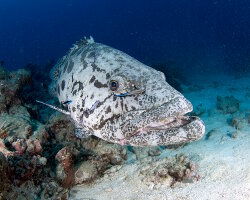
Potato grouper
(Epinephelus tukula)
(Epinephelus tukula)
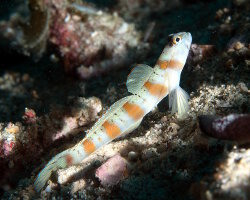
Redmargin shrimpgoby
(Amblyeleotris rubrimarginata)
(Amblyeleotris rubrimarginata)

Signalfin sandgoby
(Fusigobius signipinnis)
(Fusigobius signipinnis)

Yellow blotch angelfish
(Pomacanthus maculosus)
(Pomacanthus maculosus)

Yellowblotch razorfish
(Iniistius aneitensis)
(Iniistius aneitensis)
Our latestUpdates
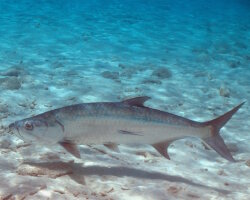
Wednesday, February 18th 2026
The Atlantic tarpon
The Atlantic tarpon is a large coastal fish that can grow up to 8 feet long and weigh over 330 pounds, with a silvery body covered in large, reflective scales. Known as the Silver King, it is famous for its spectacular leaps and fierce fight when hooked by sport fishermen.
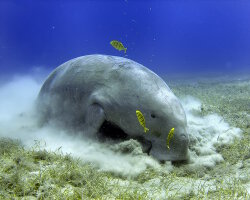
Friday, January 30th 2026
The dugong
Discover the dugong, a gentle “sea cow” of tropical waters. Learn about its habitat, diet, reproduction, morphology, and the threats facing this unique marine mammal.
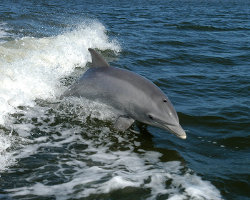
Friday, January 23rd 2026
Dolphins: ocean's smartest creatures
Discover dolphins, the ocean's geniuses: explore their intelligence, social behavior, sophisticated communication, species diversity and vital role in marine ecosystems.
Photo of the Day
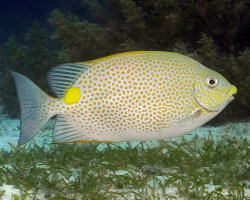
Poisson lapin tacheté d'or
(Siganus guttatus)
(Siganus guttatus)
